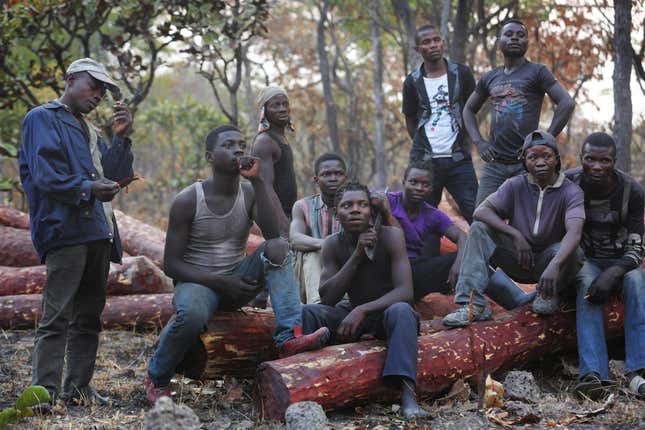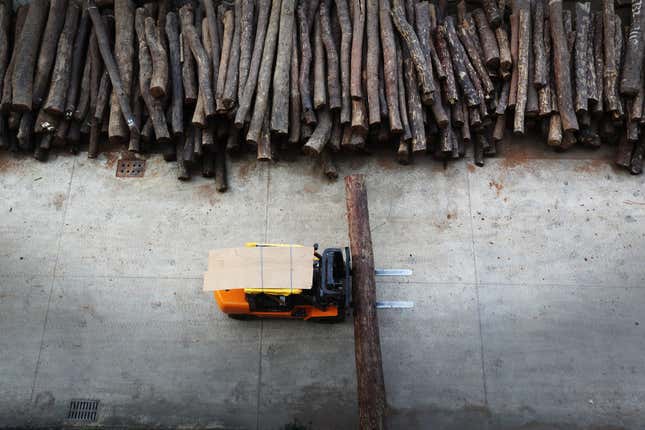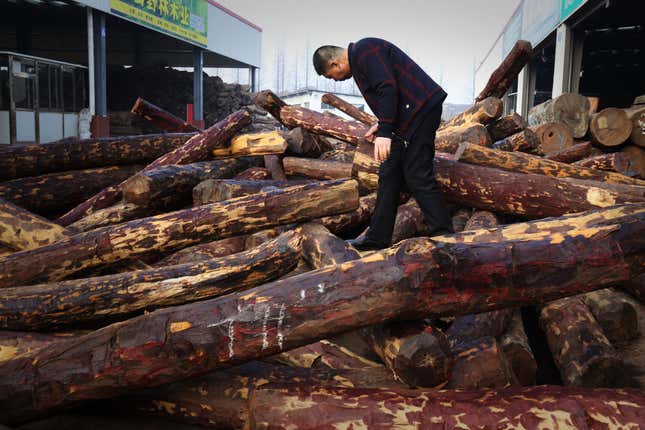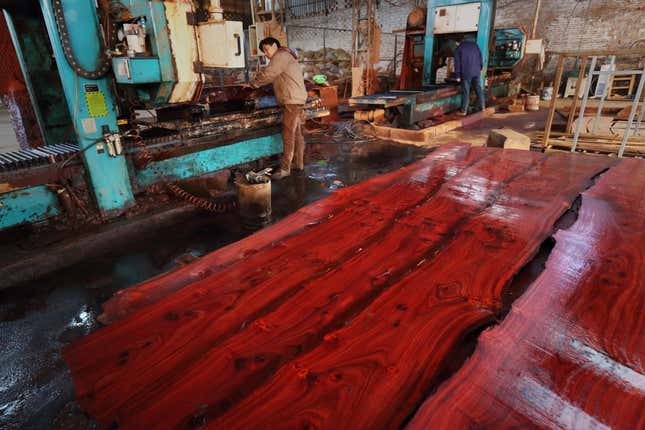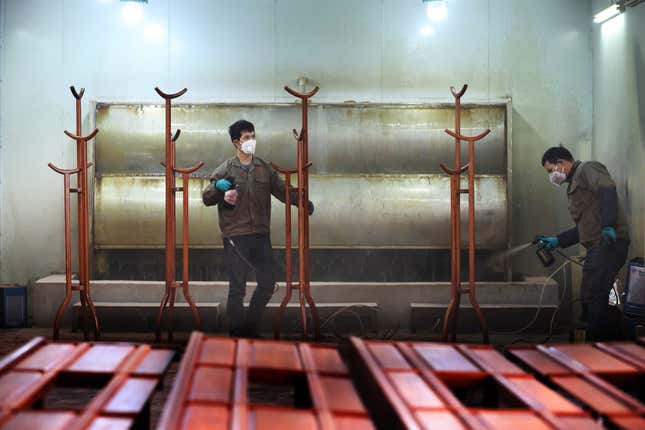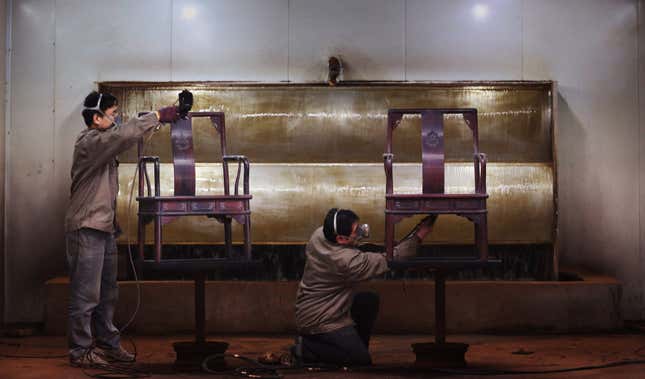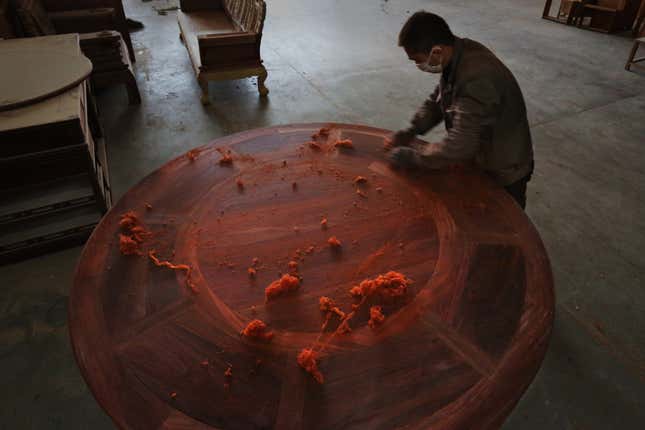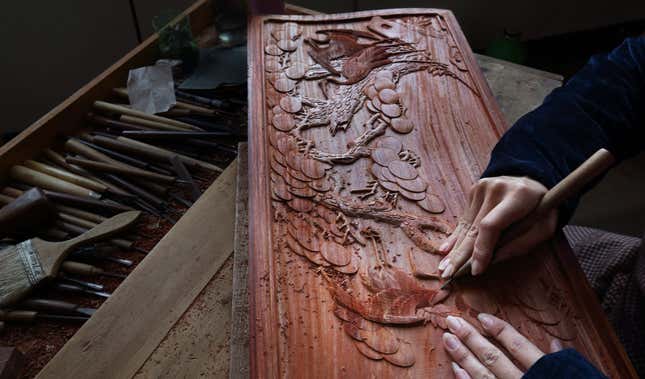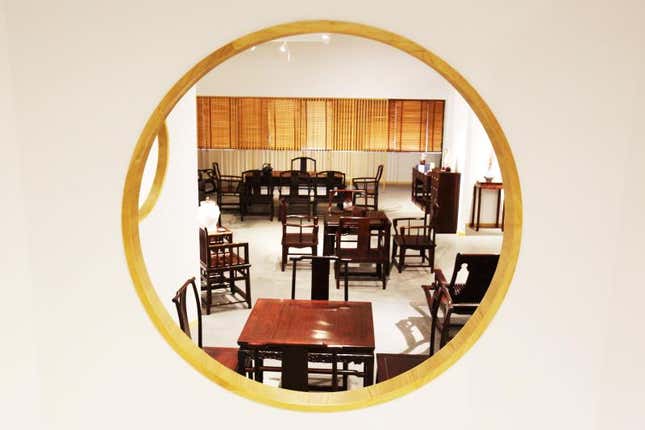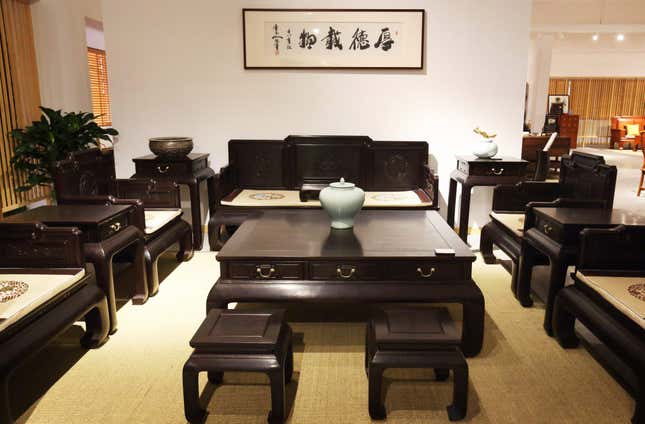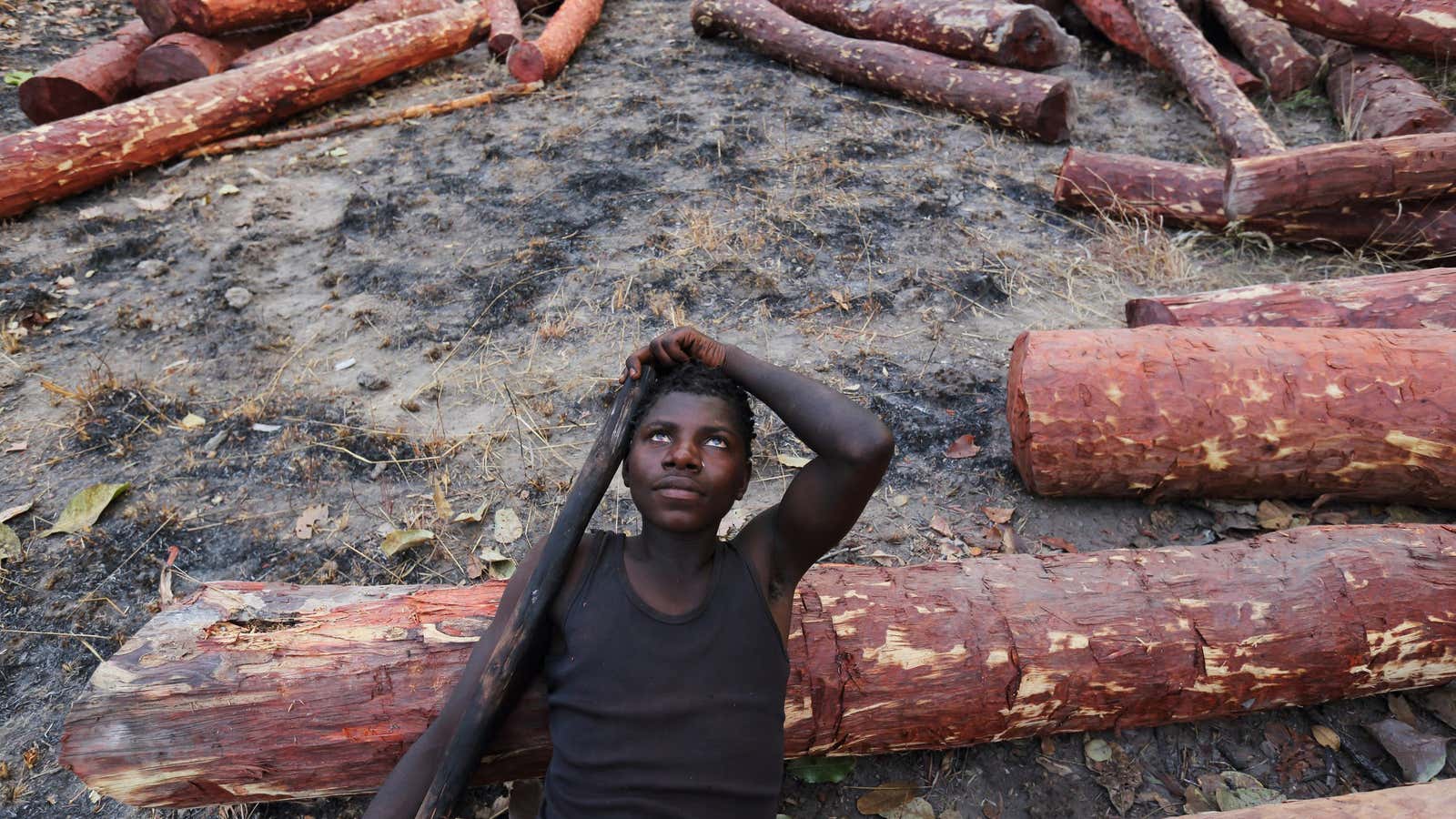The making of traditional Chinese furniture is an art form whose craftsmanship dates back as far as 1,000 BC. The furniture is made from hongmu, or “red wood,” a dense, fragrant, and most importantly, hardy wood that allows Chinese artisans to use joinery and doweling instead of glue and nails. Sometimes the word is carved into elaborate patterns or landscapes. Other times its fashioned into sleek seating arrangements that recall imperial China.
On the other side of this market are the forests in Africa and southeast Asia where these hardwoods, more commonly known as rosewood, originate. Of the 33 woods classified as rosewood in China, 16 are endangered or approaching that point. Rosewood substitutes are also starting to come under pressure. Of those, the most threatened may be the Mukula tree, a slow-growing hardwood unique to southern and central Africa that is easily passed off as traditional rosewood.
Chinese photographer Lu Guang, who won the 2003 World Press Photo award for his work on peasants infected with HIV in Henan province, traveled to Katanga province in the DR Congo as well as eastern China last year documenting the expanding Mukula industry. The project, commissioned by Greenpeace, follows its supply chain from the DRC—where it’s used for traditional medicine, dye, and a source of pollen for bees used in honey production—to processing centers in China and upscale furniture showrooms.
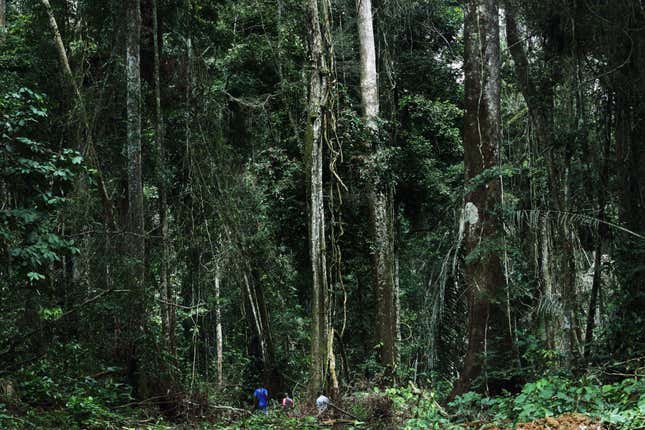
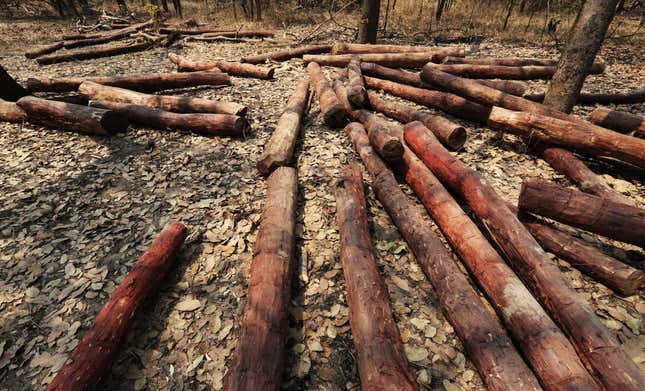
There are no official statistics for how many Mukula trees have been felled, but demand for the wood is so high that Zambia has banned exports of the wood. In China, a tonne of Mukula sells for between 17,000 and 22,000 renminbi per tonne ($2,500 and $3,200 a tonne). Greenpeace estimates that as much as 15,000 tonnes of the wood are sold each month from just four of the biggest Mukula markets in Zhang Jiagang in eastern China, home to the country’s largest Mukula processing industry. China’s rosewood furniture market was worth at least 100 billion renminbi ($15 billion) in 2012.
Local authorities are making some efforts to curb the trade. The DRC arrested 14 Chinese nationals in May on suspicion of illegal logging and export of Mukula wood. Still, any serious effort to moderate Mukula logging will have to come from China.
“As the most influential timber market in the world, China can and should support African countries’ efforts to tackle illegal logging and timber trade,” said Wenjing Pan, Greenpeace’s senior global campaigner.
